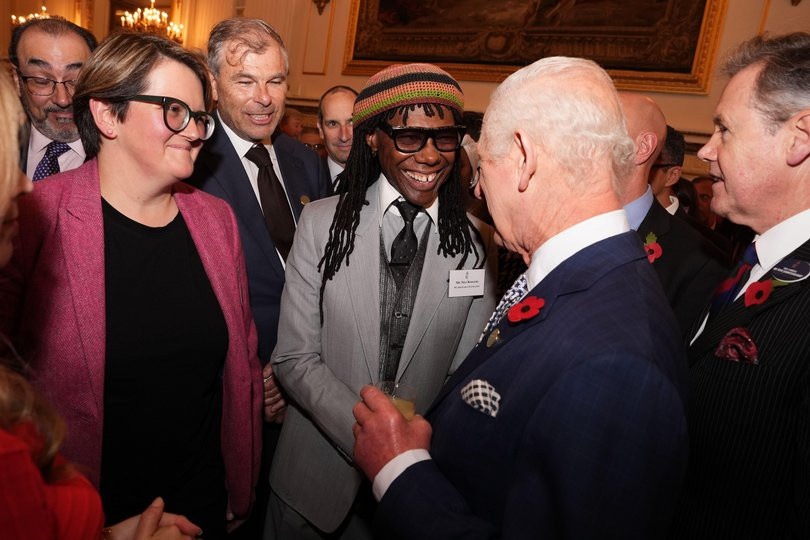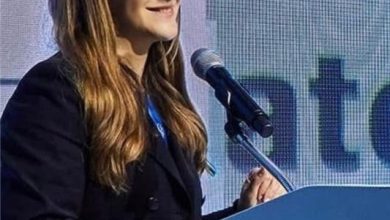Manchester Professor champions sustainable music at Buckingham Palace

A Professor from The University of Manchester attended the Reception for International Sustainability at Buckingham Palace to share her expertise and contributions in decarbonising in the music industry.
Professor Carly McLachlan, Director of Manchester Tyndall Centre for Climate Change Research, was among a group of government officials, business leaders and climate organisations at the exclusive conference hosted by King Charles III.
The reception, on 6 November, aimed to accelerate climate action before the UN climate change conference Cop29.
Professor McLachlan represented the University’s collaboration with Act 1.5, an artist-led research and action initiative incepted by the band Massive Attack to address carbon reduction within live music. Act 1.5 works closely with climate scientists at the Tyndall Centre, with its name referencing the goal of keeping global temperature rises below 1.5°C, in line with the Paris Agreement.
At the event Professor McLachlan and the team had the opportunity to discuss their project to the UK’s climate leaders, highlighting how the live music industry can play a pivotal role in reducing carbon emissions and inspiring sustainable practices across the entertainment sector and beyond.
Following several years of developmental work by Act 1.5 in collaboration with the Tyndall Centre at The University of Manchester, the city of Liverpool was recently named the United Nations’ first “Accelerator City” for climate action. The city will become a testing ground for innovative ideas and climate strategies in music, film, and television.
The initiative will officially launch later this month in Liverpool with three nights of live performances and a two-day conference, one for industry and one for the public, dedicated to exploring sustainable practices in the live entertainment sector.
It builds on a previous project commissioned by the band Massive Attack to produce what is anticipated to have been the lowest greenhouse gas emissions show of its size ever staged.
After a year, the Accelerator status will be passed to another global city. The University’s researchers will work with various ‘experiments’ across the Liverpool City Region to capture and synthesise the insights gained from Liverpool’s experiences to inform the next Accelerator City.
The Act 1.5 and Accelerator City initiative were represented by Robin Kemp, Head of Creative at Culture Liverpool; and musician Nile Rodgers, alongside Professor McLachlan at the Buckingham Palace Reception. Four-time Grammy Award winner Nile Rodgers will play one of the three nights of shows in Liverpool later this month.




